
Wilson Center
Following the crushing victory of right-wing candidate Jair Bolsonaro in Sunday’s runoff presidential election, Brazil’s Latin American neighbors are bracing for a regional “Bolsonaro effect,” AFP reports:
The knock-on effect will be felt across the region in foreign policy, trade, policing and even in how political campaigns are waged, analysts said. Bolsonaro’s win perpetuates electoral routs for right-wing presidents against leftist governments hostile to the United States, said Argentine commentator Pablo Seman — citing recent victories for Mauricio Macri in Argentina, Sebastian Pinera in Chile and Mario Abdo Benitez in Paraguay.
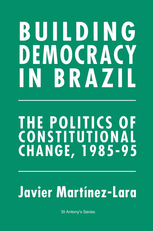 However, “the shift towards authoritarian rule may not be as extreme as many fear,” according to Michael Shifter, head of the Inter-American Dialogue think tank — because traditional parties in Congress could yet provide checks and balances. There could be a “modest Bolsonaro effect” in neighboring countries, especially those that experienced military rule, “but each country has its own particular dynamics that shape its political direction. Any contagion would be limited.”
However, “the shift towards authoritarian rule may not be as extreme as many fear,” according to Michael Shifter, head of the Inter-American Dialogue think tank — because traditional parties in Congress could yet provide checks and balances. There could be a “modest Bolsonaro effect” in neighboring countries, especially those that experienced military rule, “but each country has its own particular dynamics that shape its political direction. Any contagion would be limited.”
Despite having lost the election and some seats in Congress, the PT is still the biggest party in the lower house, The FT adds. “There is no other political force with the capacity to be main opposition force,” explained Ricardo Musse, a philosopher and expert on the Brazilian left with USP:
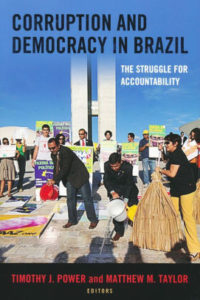 Among the main reasons voters turned to the former army captain was rejection of the PT, said pollster Datafolha. Voters cited their disenchantment with the roubalheira, or stealing, revealed by a sweeping corruption investigation known as Lava Jato. Like Italy’s mani pulite, or clean hands, graft investigations in the 1990s that inspired Lava Jato and paved the way for the rise of former prime minister Silvio Berlusconi, corruption has spurred an anti-establishment mood that has brought to power Mr Bolsonaro.
Among the main reasons voters turned to the former army captain was rejection of the PT, said pollster Datafolha. Voters cited their disenchantment with the roubalheira, or stealing, revealed by a sweeping corruption investigation known as Lava Jato. Like Italy’s mani pulite, or clean hands, graft investigations in the 1990s that inspired Lava Jato and paved the way for the rise of former prime minister Silvio Berlusconi, corruption has spurred an anti-establishment mood that has brought to power Mr Bolsonaro.
“Anyone with [a] strong anti-PT narrative could have won. Bolso was in the right place at the right time,” said Thiago de Aragão of political research house Arko Advice.
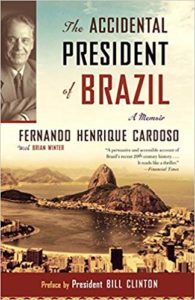 How did the unthinkable happen? asks Fernando Henrique Cardoso, Brazil’s president from 1995 to 2002 and a member of the Berggruen Institute’s 21st Century Council. Bolsonaro surfed a tsunami of popular anger and despair that swept away the entire Brazilian political system, along with the old party leaders, he writes for The Washington Post:
How did the unthinkable happen? asks Fernando Henrique Cardoso, Brazil’s president from 1995 to 2002 and a member of the Berggruen Institute’s 21st Century Council. Bolsonaro surfed a tsunami of popular anger and despair that swept away the entire Brazilian political system, along with the old party leaders, he writes for The Washington Post:
He was able to do so because of the people’s growing suspicion that representative democracy is incapable of delivering what they need. This disaffection was compounded by a brutal economic recession in Brazil, the longest in our history. Unemployment soared, urban violence reached staggering heights — nearly 64,000 homicides in 2017 or 175 deaths per day. Organized crime spiraled out of control. Political parties, especially the left-wing Workers’ Party (PT), floundered in corruption.
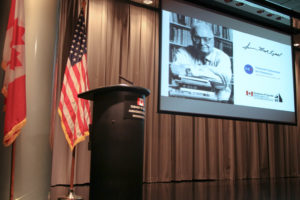 It was no wonder that the political system collapsed. Of the four presidents elected after the 1988 Constitution took effect, two were impeached, one is in jail for corruption and the other is me, adds Cardoso, who delivered the inaugural Seymour Martin Lipset Lecture on Democracy in the World, organized by the National Endowment for Democracy (NED) and the Embassy of Canada.
It was no wonder that the political system collapsed. Of the four presidents elected after the 1988 Constitution took effect, two were impeached, one is in jail for corruption and the other is me, adds Cardoso, who delivered the inaugural Seymour Martin Lipset Lecture on Democracy in the World, organized by the National Endowment for Democracy (NED) and the Embassy of Canada.
While polls show its citizenry still broadly wants democracy, the country also exhibits higher levels of support for the concept of authoritarianism than most of its peers in Latin America, The Huffington Post adds.
“The risk of political authoritarianism in Brazil is increased because you have some sympathy for authoritarian solutions hibernating in the society,” said Claudio Couto, a political scientist at the Getulio Vargas Foundation, a Rio-based think tank.
Bolsonaro had successfully built his campaign on fear: of an imagined communist threat, a supposed moral collapse, and of chronic insecurity that he has promised to combat by loosening gun laws and with an iron-fist, historian and writer Lilia Schwarcz told The Guardian.
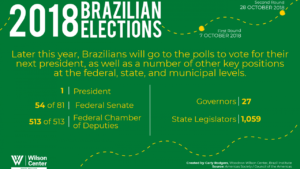
Wilson Center
He benefited from a hardline stance on Brazil’s insecurity and violence problem, as well as his outsider status, which set him apart from the various corruption scandals that have dogged the left-wing Worker’s Party of his opponent, Fernando Haddad, analyst Annabelle Timsit writes for Quartz:
But, perhaps most of all, Bolsonaro is seen as the man to right Brazil’s economic woes. That’s partly because his economic advisor, Paulo Guedes, a free-market economist from the University of Chicago, crafted a liberal economic message for his boss, including proposals to slim down Brazil’s sprawling state bureaucracy and push through through privatizations and public-spending cuts.
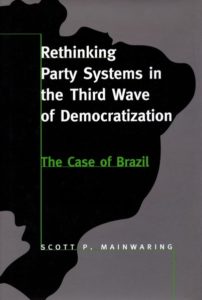 “This is a really radical shift,” said Scott Mainwaring, a professor at Harvard University’s Kennedy School of Government who specializes in Brazil. “I can’t think of a more extremist leader in the history of democratic elections in Latin America who has been elected,” he told The New York Times.
“This is a really radical shift,” said Scott Mainwaring, a professor at Harvard University’s Kennedy School of Government who specializes in Brazil. “I can’t think of a more extremist leader in the history of democratic elections in Latin America who has been elected,” he told The New York Times.
Parallels have been drawn between Bolsonaro and Mexico’s leftwing president-elect, Andres Manuel Lopez Obrador. Their political outlook is profoundly different. But as analyst Moises Naim noted, “both have crafted a persona as outsiders, as radical voices largely excluded by the ruling political elites,” The Guardian adds:
Despite his objectionable views, Bolsonaro’s estimated support among women voters was as strong, or stronger, than Haddad’s. Some black and gay voters also backed him, saying other issues mattered more. His advocacy of “traditional family values”, including religious faith, went down well with voters for whom such issues are key determinants.
 “The way he’s run his campaign is very clever,” said Matias Spektor, a professor of international relations at Fundação Getulio Vargas University. “He has managed to align himself with the institutions that Brazilians still believe in: religion, family and armed forces.”
“The way he’s run his campaign is very clever,” said Matias Spektor, a professor of international relations at Fundação Getulio Vargas University. “He has managed to align himself with the institutions that Brazilians still believe in: religion, family and armed forces.”
Bolsonaro’s conquest of voters across the board is testament to the deep discontent in Brazilian society with traditional parties of all stripes but especially with the PT, which presided over the country’s worst recession and corruption scandal, The FT notes. For David Fleischer, a political scientist at the University of Brasília, despite Mr Bolsonaro’s crude remarks, many women, blacks and gay voters, “are very anti-PT and anti-Lula”.
“Women, blacks and gays vote for Bolsonaro for the same reasons that white male heterosexuals do: an anti-system sentiment, promises to fight insecurity, anti PT-sentiment,” said Fabio Lacerda, a professor of politics at Ibmec business school.
Bolsonaro’s victory will improve prospects for placing pressure on the authoritarian ‘Cubazuela’ axis, observers suggest. At the very least, he will end the use of the state-owned oil giant, Petrobras, to “subsidize the military dictatorships in Cuba and Venezuela”, says Wall Street Journal analyst Mary Anastasia O’Grady.
What all this ultimately portends for Brazil’s democracy remains to be seen, says Michael Albertus, an associate professor of Political Science at the University of Chicago.
Despite its power and influence, the military would far rather work through a Bolsonaro presidency than rule directly. But if the two hollow out Brazilian institutions enough—and if Bolsonaro unleashes the police and armed forces against his critics, as he has threatened to do—Brazil could retrace its steps all the way back to 1964, the last time the military fully took control, he writes for Foreign Policy.







